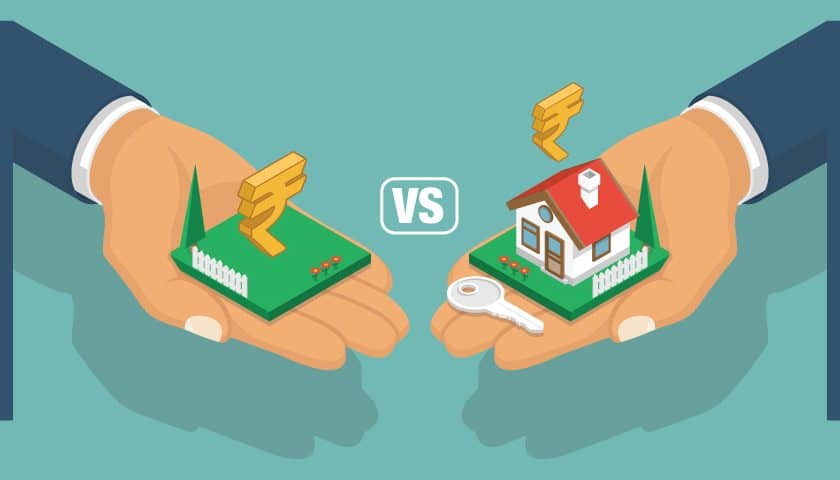A borrower might get confused when they approach Indian lenders for a loan. This is primarily because loans have several names and purposes. Moreover, sometimes one loan is addressed by different names or different loans are referred to by one name. For example, the term ‘Mortgage Loan’ is often used for home loans and loans against property. This article demystifies the top differences between home loans and loans against property to help you make the right decision.
Here are the top differences between home loan and loan against property:
- Purpose
The purpose of a home loan is to provide you with funds to purchase or construct a home. Home loans have different variations, such as a primary home loan for building or buying a house, home improvement or renovation loan for renovating a property, home extension loan for adding floors or rooms to an existing property, and residential plot loan for purchasing a plot of land.
On the other hand, a loan against property is granted on an already-constructed residential or commercial property. The lender retains the property ownership documents until the loan is repaid in full.
- Fund Usage
The second point in the home loan vs loan against property debate is how you can use the funds. While you can use home loan funds only for house construction or purchase, loan against property funds can be used for multiple purposes. You can use loan against property funds to purchase or construct a house, renovate your home, set up a business, but motor vehicles, sponsor a wedding or foreign trip, or pay educational or medical bills.
Hence, a loan against property is more flexible than a home loan.
- Interest Rate
Home loan interest rates are much lower than loan against property interest rates. It is also why home loans generally get more weightage in the home loan vs loan against property debate.
Presently, home loan interest rates start from 6.75% for salaried and self-employed professionals and 7.10% for self-employed non-professionals. However, the interest rates start from 7.75% for loan against residential and commercial property and 10.50% for loan against plot and loan against special property.
So, a home loan can enable you to save a higher amount every month. Also, you can reduce home loan interest further by availing of a home loan under the government scheme Pradhan Mantri Awas Yojana (PMAY).
- Tenure
Tenure or term plays a significant role in determining your repayment capability. If your loan term is high, your EMI will be more affordable. Also, you can avail of a higher loan amount when the EMI is affordable.
When it comes to tenure, home loan is a clear winner in the home loan vs loan against property debate. While the maximum repayment term of a home loan is thirty (30) years, a loan against property allows a maximum tenure of twenty (20) years.
Hence, a home loan provides you with more time to repay your loan.
- Loan Amount
A home loan can fetch you more money than a loan against property. This is because lenders approve an amount of up to 90% of the property value on home loans. In contrast, a loan against property gives you funds worth 60% of the property’s present market value.
Conclusion
While both home loan and loan against property are collateral-based, each serves a unique purpose. Now that you know home loan vs loan against property well, the choice must seem simple.


More Stories
Load Cell for Packaging Industries – MODEL: HSSB, BBM, SESB
10 Proven Ways to Earn Money as a Coach in 2025
Low-Interest Collateral Loans on Rare Coins in Peachtree City